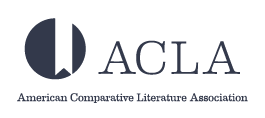[ad_1]
Aesthetics and Politics of Necrofiction
Appel à communications pour un séminaire dans le cadre de la réunion virtuelle de l’ACLA
Dates du séminaire: 29 mai – 1er juin, 2025
Organisé par: Ioana Pribiag et Oana Panaïté
Death is universal; its conditions are not. Nor are its connections to memory. As Judith Butler explains, for death to count, for it to register as a mournable loss, it must first be framed and recognized as the end of a life that counts. Achille Mbembe’s seminal work on “necropolitics” similarly explores how deeply unequal power structures determine the precariousness of life and the visibility of death. In this context, our seminar considers a fundamental question: How does contemporary literature intervene to commemorate the dead and inscribe the memory of invisibilized lives into communal, national, and global histories and narratives? At the core of our discussion will be an exploration of the resonances and potential applications of Oana Panaïté’s notion of “necrofiction.”
Necrofiction serves here as an overarching theoretical framework to place into dialogue fictional narratives that act as “literary tombs.” Our aim is to investigate how exactly literature can do justice to the irreducible specificity of concrete deaths while simultaneously gesturing towards the universal experience of mortality and the inherent relationships between death and the literary itself. Through this lens, we seek to understand the mechanisms through which literature can act as an ambivalent space of remembrance and a site of critical interrogation.
We invite contributions on practices of writing, reading, and interpreting necrofiction, including:
- The ways necrofictional narratives can sustain memory as an open process or cause its foreclosure.
- The role of literature in bearing witness to forgotten or marginalized individual or collective deaths.
- Examinations of the relation between aesthetics and mourning.
- Perspectives investigating postcolonial necrofiction.
- Analysis of literary portrayals of death as both a shared human condition and a deeply subjective experience.
- Challenges and demands of authenticity in narratives of loss and mourning.
- How fictional narratives might counter or subvert necropolitical control.
Presentation proposals must be no longer than 1500 characters (spaces included). We invite submissions dealing with any genre, region of the world, and language, but proposals (and seminar presentations) must be in English. Please contact the organizers if you have any questions, however proposals must be submitted directly through the ACLA portal by October 14th.
2024-09-17 08:47:00
[og_img
Aesthetics and Politics of Necrofiction
Appel à communications pour un séminaire dans le cadre de la réunion virtuelle de l’ACLA
Dates du séminaire: 29 mai – 1er juin, 2025
Organisé par: Ioana Pribiag et Oana Panaïté
Death is universal; its conditions are not. Nor are its connections to memory. As Judith Butler explains, for death to count, for it to register as a mournable loss, it must first be framed and recognized as the end of a life that counts. Achille Mbembe’s seminal work on “necropolitics” similarly explores how deeply unequal power structures determine the precariousness of life and the visibility of death. In this context, our seminar considers a fundamental question: How does contemporary literature intervene to commemorate the dead and inscribe the memory of invisibilized lives into communal, national, and global histories and narratives? At the core of our discussion will be an exploration of the resonances and potential applications of Oana Panaïté’s notion of “necrofiction.”
Necrofiction serves here as an overarching theoretical framework to place into dialogue fictional narratives that act as “literary tombs.” Our aim is to investigate how exactly literature can do justice to the irreducible specificity of concrete deaths while simultaneously gesturing towards the universal experience of mortality and the inherent relationships between death and the literary itself. Through this lens, we seek to understand the mechanisms through which literature can act as an ambivalent space of remembrance and a site of critical interrogation.
We invite contributions on practices of writing, reading, and interpreting necrofiction, including:
- The ways necrofictional narratives can sustain memory as an open process or cause its foreclosure.
- The role of literature in bearing witness to forgotten or marginalized individual or collective deaths.
- Examinations of the relation between aesthetics and mourning.
- Perspectives investigating postcolonial necrofiction.
- Analysis of literary portrayals of death as both a shared human condition and a deeply subjective experience.
- Challenges and demands of authenticity in narratives of loss and mourning.
- How fictional narratives might counter or subvert necropolitical control.
Presentation proposals must be no longer than 1500 characters (spaces included). We invite submissions dealing with any genre, region of the world, and language, but proposals (and seminar presentations) must be in English. Please contact the organizers if you have any questions, however proposals must be submitted directly through the ACLA portal by October 14th.
